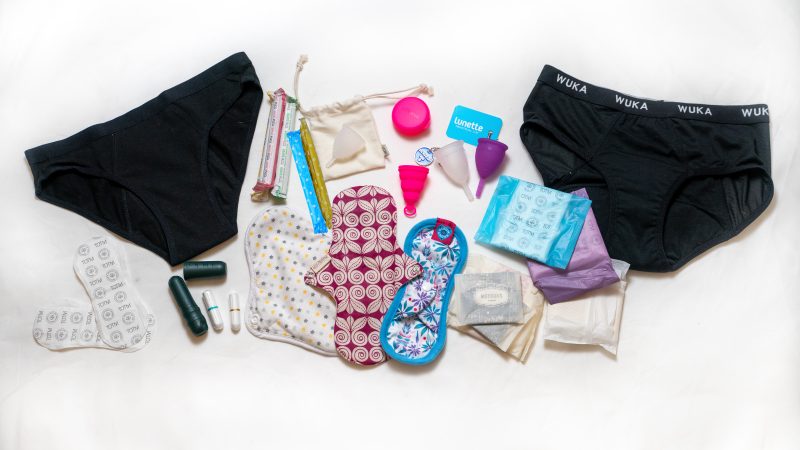Research shows one in four young people in the UK don't know when they started their period.

Jasmine Tribe is a Campaign Manager for City to Sea and Teacher Trainer for Rethink Periods
Plan UK found that amongst 14-21 year olds, one in ten were unable to afford period products. During the UK’s first lockdown the issue worsened, with three in ten young people reported struggling to afford or access to period care.
Period product poverty is a serious issue that impacts the lives of menstruating people all over the world, and it deserves all the attention it gets. However, there is still one aspect of period poverty that nowhere near enough people are talking about.
Global Citizen defines Period Poverty as: ‘the lack of access to period products, menstrual education, toilets, hand washing facilities, and/ or waste management.’
This Period Poverty Week we want to highlight the importance of this less-spoken-about aspect: a lack of access to menstrual education.
Research by Plan UK found that one in four young people in the UK didn’t know what to do when they first started their period. Nearly half of young people are embarrassed by their periods and over half had made up an excuse when missing school or sports lessons because of menstruation.
This isn’t limited to young people; in the US 37% of women surveyed could not correctly identify the definition of the menstrual cycle in a multiple choice question. Women seemed equally confused by menopause, and 52% think that their knowledge gaps are preventing them from advocating for themselves in a doctor’s office.
If people don’t know what their period is and how it impacts them, how can they care for themselves and others, stand up for reproductive rights and seek help for medical problems? With so many unable to access period products, how is the nation’s workforce and student population stunted, and how does this affect the mental health of people with periods? If period advertising and information is biased, inaccessible and exclusive, what unrealistic standards are we trying to uphold, and who is being excluded from these vital conversations?
The study found that participants attributed their lack of understanding to teachers, parents and government education standards. So what can be done to tackle menstrual education poverty?
Education Providers
At City to Sea, we provide free training and resources on the full range of products, myths and taboos, environmental impacts and period equality. Our free Rethink Periods training equips teachers and school nurses with resources to ensure that students of all genders can talk more openly about periods and get the information they need and deserve.
Youth leaders, adult support workers, community groups can access training and resources from Hey Girls.
Care-givers
Having the first period conversation can be a difficult one to navigate but it’s absolutely vital. Some young people start their period at the age of 8, so this conversation needs to be had early!
This is not just a talk for mums – all parents and caregivers should be involved. Hey Girls have created a ‘Pads4Dads’ kit to give nervous parents a helping hand.
Instagram is a great source of information . We recommend @natracare, @lunettecup, @bloodyhonest, @proudofmyperiod, @environmenstrual and @bloodygoodperiod.
Government
Free period products are now available to all state funded schools and PSHE was made compulsory in 2020. But now we need government to invest in holistic, inclusive and high-quality period education programs that work alongside the free product provision.
Government also need to update existing online information about periods and period products, removing bias and ensuring language is inclusive. Government guidance for schools around free period products the reusable products have been made to sound unappealing, and the NHS website still only lists tampons, pads and menstrual cups as period care options.
Finally, we would love to see more NHS Trusts signing up to our Plastic Free Periods training at City to Sea. Gynaecologists and healthcare professionals are amongst the most trusted figures when it comes to menstrual health, so they must have the most up to date information, practises and language.
This is a complex issue that needs joined-up and intersectional solutions. But one thing is for sure – we must work towards ensuring everyone has access to holistic and inclusive menstrual education.
City to Sea is an environmental not-for-profit, campaigning to stop plastic pollution at source. Their award-winning campaigns are tackling the single-use plastic items most found on our beaches and in our rivers and oceans by providing practical, solutions-focused initiatives and championing reuse over single-use https://www.citytosea.org.uk
To reach hundreds of thousands of new readers we need to grow our donor base substantially.
That's why in 2024, we are seeking to generate 150 additional regular donors to support Left Foot Forward's work.
We still need another 117 people to donate to hit the target. You can help. Donate today.



